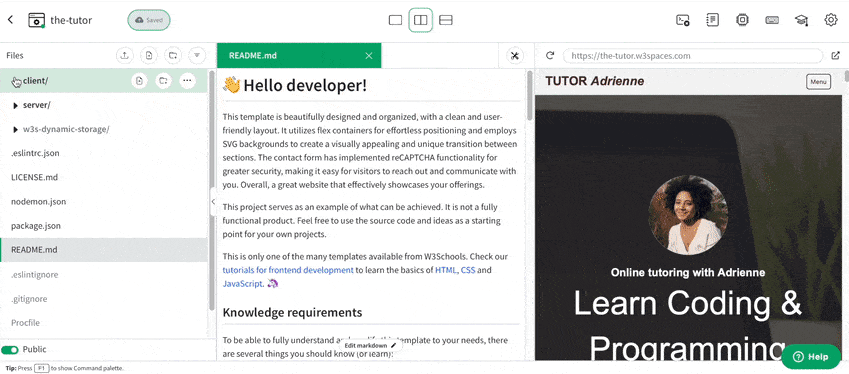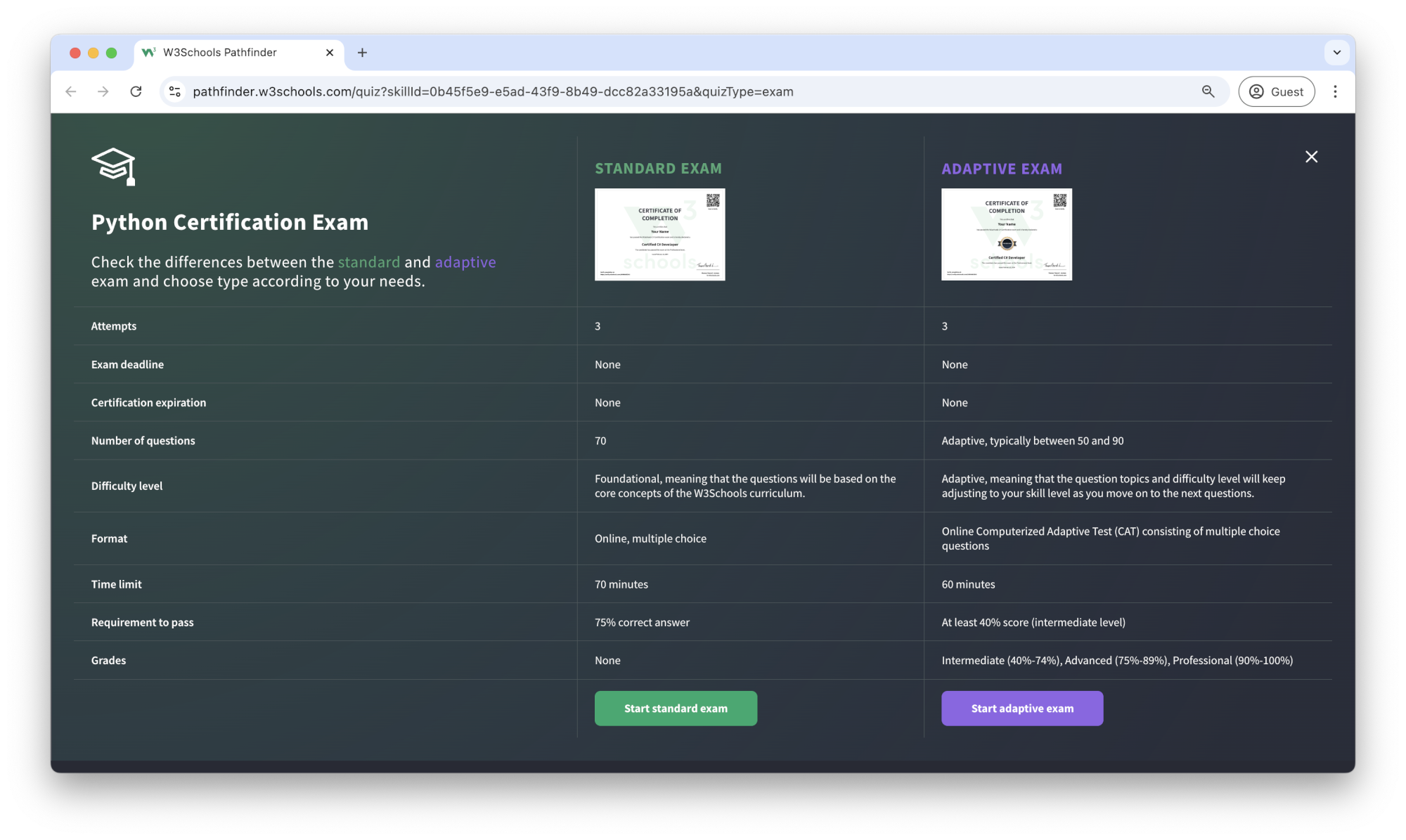Python Syllabus
Introduction
The W3Schools Python Tutorial is comprehensive and beginner-friendly.
It will give you a fundamental knowledge of Python.
It is designed for beginners and requires no prior experience with programming.
The content has been carefully made to be bite-sized, simple, and easy to understand.
The content has been proven by millions of users over the years. It is updated and improved frequently.
The syllabus outline and its sequence are structured so you can learn Python step by step, from the introduction, to creating your first application with Python.
Learning Outcomes
- Understand Python basics, such as syntax, variables, and data types.
- Write Python code using loops, conditionals, and functions.
- Handle files (open, read, write) using Python.
- Use Python libraries and modules for specific tasks.
- Work with data structures like lists, tuples, sets, and dictionaries.
- Develop programs that use object-oriented concepts such as classes and inheritance.
- Develop a problem-solving mindset.
Note: Are you a teacher teaching Python programming? W3Schools Academy is a toolbox of features that can help you teach. It offers classroom features such as pre-built study plans, classroom administration and much more. Read more about Academy here.
Which Subjects Are Python Relevant For?
-
Computer Science
Python can be used to learn programming -
Mathematics
Python can help solve math problems and do calculations - Science (Physics, Chemistry, Biology)
Python can be used to make scientific models and undertake experiments -
Economics and Finance
Python can be used to analyze data, understand trends, and do financial calculations -
Data Science and Analytics
Python and its libraries can be used for big data and to find patterns -
Robotics and Engineering
Python can be used to make programs to control robots or test engineering projects -
Art and Design
Python can be used to create digital art, interactive projects, and automate tasks -
And more
Python can be useful for many other subjects
Activities
In this tutorial we offer different activities for you to learn Python for free:
Sign in to Track Progress
You can also create a free account to track your progress.
As a signed-in user, you get access to features such as:
- Learning paths
- Sandbox and lab environments
- Achievements
- And much more!
Overview of the Modules
- Python HOME
- Python Intro
- Python Get Started
- Python Syntax
- Python Comments
- Python Variables
- Python Data Types
- Python Numbers
- Python Casting
- Python Strings
- Python Booleans
- Python Operators
- Python Lists
- Python Tuples
- Python Sets
- Python Dictionaries
- Python If...Else
- Python While Loops
- Python For Loops
- Python Functions
- Python Lambda
- Python Arrays
- Python Classes/Objects
- Python Inheritance
- Python Iterators
- Python Polymorphism
- Python Scope
- Python Modules
- Python Dates
- Python Math
- Python JSON
- Python RegEx
- Python PIP
- Python Try...Except
- Python User Input
- Python String Formatting
- Python File Handling
- Python NumPy
- Python Pandas
- Python SciPy
- Python Django
- Python Matplotlib
- Python Machine Learning
- Python MySQL
- Python MongoDB
Sandbox and Lab Environment
Python, like any other programming language, is best learned by working hands-on with code.
Easily try code with our "Try it Yourself" editor.
Here, you can edit Python code and view the result:
If you want to explore more and host your project, we have a feature called Spaces that allows you to build, test and deploy Python code and other backend languages.
Here you get a secure sandbox environment called Spaces, where you can practice coding and test projects in real-time.
Spaces allow you to test, build, and deploy code. This includes a W3Schools subdomain, hosting, and secure SSL certificates.
Spaces require no installation and run directly in the browser.
Features include:
- Collaboration
- File navigator
- Terminal & log
- Package manager
- Database
- Environment manager
- Analytics

Python Certification
W3Schools offers an end-of-pathway certification program.
Here you can take exams to get certified.
The Python exam is a test that summarizes the W3Schools Python syllabus.
After passing the exam you get the "Certified Python Developer" Certification.
There are two different types of certifications:
- Non-adaptive
- Adaptive
The non-adaptive is pass or no pass.
The adaptive certification is adaptive and graded; students will get a grade from intermediate, advanced to professional.

Are You a Teacher?
Are you interested in learning how you can use W3Schools Academy to Teach Python programming?
Join our upcoming webinar for a guided demo of W3Schools Academy. You'll see how it works, and discover how it can make teaching programming easier and more engaging.


